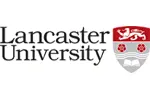Develop the very latest data analysis and research skills to make sense of human behaviour through psychological evidence. We offer a distinctive focus on the modern research workflow, enabling you to step into any research role, from critically evaluating evidence, to planning and implementing data acquisition, to applying advanced statistical modelling or in-depth qualitative techniques. Working through a portfolio of real-world problems, we build your psychology foundations, then develop your advanced research skills so that you graduate with the opportunity to progress into a range of careers.
Who is this programme for?
You don’t need a background in psychology to apply for this Master’s - we welcome applicants from a wide range of backgrounds. You may have a degree in other areas such as computing, environmental science, natural sciences, linguistics or sociology. Or you may work in teaching or health and social care services.
Looking ahead to employability
The MSc Behavioural Science Skills offers a rich learning experience to develop your skills in:
- Critical thinking and the systematic evaluation of evidence
- The ethics of good practice
- Advanced statistical modelling techniques for research used in universities, industry, healthcare and government
- The application of reproducible methods to meet modern expectations of best practice in open science
- Working in research groups and as an independent researcher on real-world problems
- How to explain and present your findings effectively
What to expect
Our world-leading academics deliver a series of core modules where the techniques you learn will be applied to real-world data and challenges. You will:
- Develop skills in the systematic review of research literature, to distil the latest understanding on psychological topics
- Build coding skills from the foundations of statistical analysis to the most cutting-edge statistical modelling techniques
- Work with data that captures human experiences in the qualitative analysis of talk and text
- Gain in-depth insights into the real-world challenges of research in the cognitive sciences, in the study of social processes and in neuroscience
Your experience culminates with the dissertation project and the opportunity to contribute evidence to answering real research questions, as independent researchers or working as part of research teams.
Three things we would like you to know
- Work with researchers who draw together the latest research to understand psychology in practice, such as the effect of autism on learning, how memory affects education, or human interactions in conflict situations
- Join us in promoting the latest approaches to open and ethical behavioural science
- Recent student dissertations have investigated effective communications in healthcare, or emotional processing of marketing communications, or the effects of sleep on boosting problem-solving skills
Flexible study options Study alongside work and other commitments by taking this course on a part-time basis. Running over two years, you take a selection of the modules each year. We will liaise with you over your choice of optional modules and your schedule, so that you can successfully balance your work and other commitments alongside the Master’s programme.









